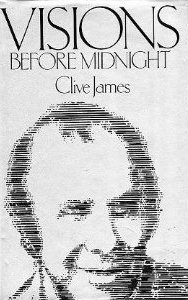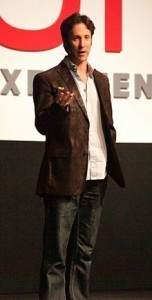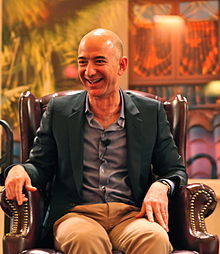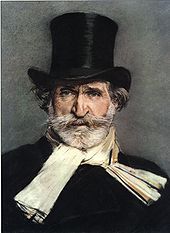Scott Timberg's Blog, page 22
November 18, 2014
Are Books an “Essential Good”?
IN France, bookstores and literary culture thrive, in part because of laws privileging books and protecting their producers and disseminators. A recent discussion in the New York Times Book Review asked if we need a similar system here.
The provocative critic Daniel Mendelsohn starts by talking about cultural differences between French and American culture.
Whatever the cultural reasons, books in France are indeed an “essential good” — the designation coined by the French government that served to justify the very concrete steps it has taken over the years to protect its precious literary culture. The most prominent of these are laws outlawing the advantages (deep discounting combined with free shipping) that big chains and Amazon enjoy over independent booksellers in the United States and other countries. These help explain a phenomenon that inevitably strikes American visitors to France today: As even big chains such as Borders and Barnes & Noble have faltered here, every block in central Paris seems to sprout at least two small, intelligently stocked bookshops.
As well they should. On average, a Frenchman reads 25 percent more books per year than an American does. (The shocked outcry over the French culture minister’s admission that she hasn’t read a book in two years only proves how anomalous she is.) Other statistics are equally striking. In 2008, for instance, 14 percent of books published in F
rance were translations from other languages: a key indicator of a nation’s intellectual curiosity and awareness. In the United States, the figure scrapes along at 3 percent.
What do my readers — a number of whom seem to live in Europe, especially the German-speaking world — make of this?
November 16, 2014
Farewell to Clive James
HOW much longer will the beleaguered polymath last? No one knows. But my friend and guest columnist Lawrence Christon has penned an appreciation of the great Australian-born writer. With no further ado:
“THE LONG GOODBYE,” By Lawrence Christon
At 75, Clive James is close to the end of a battle with a form of leukemia that’s gone on so long that he’s expressed embarrassment over outlasting his presumed expiration period. That mild touch of chagrin is oddly characteristic of one of our great living polymaths. As poet, TV and literary critic, memoirist, essayist, scholar, interviewer, and man who became famous on U.S. television by commenting on fame, the Australian-born, London-based James is one of the few remaining public intellectuals whose sense of humor and breadth of interest haven’t been stifled by academia.
That’s partly because, after earning honors at Cambridge, he’s stayed out of it. He doesn’t think education leads to a career; to him, education is the career. When he writes of late nineteenth and early twentieth century Vienna, and how the Austrian, German, and Central European university systems denied tenure to Jews, he’s more than happy to imagine himself among the cosmopolitan likes of Raymond Aron, Walter Benjamin, Marc Bloch, and Egon Fredell, sitting at café and cabaret tables to talk the night away on history, ideas, culture and politics. He was too young actually to have been there, but he saw in them his own driven style toward “journalism, plain speech, direct observation and the necessity to entertain.”
He also saw the culminating force of what they all, one way or another, embodied, as with Stefan Zweig, “[whose] life, work, exile and self-inflicted death combine to sum up so much of what has gone before, which is really the story of the will to achievement in the face of all the conditions for despair.”
For those who aspire to civilization, the dynamic persists. Just look around. James has, for well over forty years and through over twenty-five published volumes. His “Cultural Amnesia,” which came out in 2007, is a brilliant summary example of a fertile, idiosyncratic mind refusing to make itself up on dozens of important figures ranging from Anna Akhmatova to Duke Ellington to Unamuno, Einstein, Flaubert, Freud and, improbably, Tony Curtis. Who really gets the last word anyway? James takes their measure without measuring them, except now and then to allude to the hypocrisy of bad faith, as in Sartre’s care not to level direct broadsides toward the occupying fascists who prided themselves on their appreciation of culture and ideas, including those of Sartre.
James is among the wittiest writers alive, without calling attention to his talent to amuse. He leaves that to his prose, of which he’s written, “the English language has always made its main initial impact through the turn of single phrase.” He’s a master of understatement and indirection, of angles and switchbacks, which give his sentences texture and bite. And style, which represents far more than flourish.
When writing of his late friend and former classmate, the art critic and historian Robert Hughes “…There are degrees of anguish which only style can contemplate…” he might as well have written about himself. Decades ago I read his first book, “Unreliable Memoirs.” I laughed so hard that I genuinely feared for my lungs collapsing. And still I couldn’t stop. When I picked it up more recently, all I could experience was the anguish.
All writing is discovery. To read James is to keep arriving at that surprising somewhere. To wit:
“…there is no such thing as an individual voice: there is only an individual responsibility…”
“..much beauty begins as a consolation for what can’t be mended.”
“…the unearned omniscience of postmodernism depends on its facility for connecting things without examining them.”
“…the occult and the mystically profound are perennial short cuts to a supervening vision: a world view without the world.”
“A work of art has to be judged by its interior vitality, not by its agreed prestige.”
“Praise and blame are aspects of the same thing. The capacity for criticism is the capacity for enjoyment.”
There seems to be no limit to his desire to share that enjoyment. But there’s an underlying seriousness too. In a world only fitfully coherent, he explains his humanist credo:
“As a journalist and critic, a premature postmodernist, I was often criticized in my turn for talking about the construction of a poem and of a Grand Prix racing car in the same breath, or of treating gymnasts and high divers…as if they were practicing the art of sculpture. It was a sore point, and often sore points reveal where the real point is. Humanism wasn’t in the separate activities: humanism was the connection between them. Humanism was a particularized but unconfined concern with all the high-quality products of the creative impulse, which could be distinguished from the destructive one by its propensity to increase the variety of the creative world rather than reduce it.”
It’s an unusual sensation to know that, while most of us still reading James will outlive him, he’ll eventually wind up outliving us all.
November 14, 2014
Is Free Will For Real?
SO who decides what we do — our biology or us? Is there anyone home, or do we just run through our decisions the way nature programmed us? I didn’t think there was a lot more to say about free will, which often provokes dull, abstract debates, but a presentation in Puebla, Mexico last week by David Eagleman, a neuroscientist at Baylor College, fascinated me.
Eagleman’s speech — and I saw a lot of good ones last week at La Ciudad de las Ideas, an ideas conference — had real consequences for our society and our criminal justice system specifically.
 He started by mentioning that our brains are made up of roughly 100 billion neurons, each as complicated as the city of Puebla, and each one wired to thousands of others. But there’s a stranger inside our brain: “Deeply carved evolutionary programs run in the background.”
He started by mentioning that our brains are made up of roughly 100 billion neurons, each as complicated as the city of Puebla, and each one wired to thousands of others. But there’s a stranger inside our brain: “Deeply carved evolutionary programs run in the background.”
So many of our decisions are unconscious, he says — we’re more likely, for instance, to marry someone whose name shares a first name with ours (guilty as charged). A lot of violent criminals, he says, had brain tumors and things like that, including Charles Whitman, who went on a shooting spree from a tower at the University of Texas in 1966.
To what extent, Eagleman asked, “does the mental equal the physical”? Is biology destiny? How does morality and decision making look different when we digest all of this?
Meanwhile, in the U.S., we have a one-size-fits all criminal justice system — we lead the world in incarceration, and 30 percent of those behind bars have some kind of mental illness.
I’m skeptical of reductive neuroscience explanations — I think the human soul and human relationships, and especially our culture are more complex than some scientists acknowledge. But Eagleman was persuasive.
Eagleman, who’s written several books and founded the Initiative on Neuroscience and the Law at Baylor. Dude is worth watching.
November 13, 2014
Musicians Respond to YouTube’s Streaming Plan
IT’S been on the verge of dropping for months now, but YouTube has finally announced its new music streaming service, which could perhaps crush some of the others. What will it mean for musicians, er, content providers, especially those without corporate backing? At this point we don’t entirely know, but the group Content Creators Coalition — a group I neither belong to nor always agree with, but who are an important voice in matters like this — have released the following vote of no confidence.
They’re not the only ones: My longtime hero Billy Bragg has been quite vocal on what this would do to indie musicians and indie labels.
CCC’s board includes experimental guitarist Marc Ribot, singer John McCrea of Cake, jazz/funk bassist Melvin Gibbs, and singer-songwriter Rosanne Cash. Here’s their statement:
For years, YouTube has made revenue off of the copyrighted songs and videos of artists by placing advertising on the content. In most cases, the artists did not receive any compensation while Google and
YouTube made serious money. With YouTube Music Key, YouTube has undergone minor cosmetic surgery to re-emerge as a more formidable competitor in the streaming market. As with most plastic surgery, the inherent personality problems of YouTube remain – and new issues have arisen.
YouTube has made licensing deals ahead of this announcement, but the terms of these deals with the majors and numerous indie labels – despite the original uproar over their previous attempt to strong-arm indies into nefarious agreements – remain undisclosed. What’s the difference in royalty rates to rights holders in the free tier vs. the subscription service, for example?
YouTube Music Key has also made their proprietary takedown of illegal content only available to artists and labels who make deals with them. Will takedown mean stay down for artists who do not wish to make their music available on the service? We’re not optimistic. In light of the YouTube Music Key announcement, Google’s recent attempt to lower the ranking of piracy sites in their own search results look more like a convenient way to drive listeners to Google.
According to projections by eMarketer as cited in the Billboard November bulletin <http://www.billboard.com/files/pdfs/Bulletin/november-12-2014-billboard-bulletin.pdf>, YouTube is estimated to bring in 1.13 billion in advertising this year. It’s the paradox of the digital age that even with all the data tracking muscle of Google behind YouTube, there can be so little clarity about how this revenue is supposed to reach artists. We can’t forget that the future of the music industry is not dependent on technology – it’s dependent on creative sustainability so artists can continue to generate new work.
— Sarah Manning for Content Creators Coalition
I’ll keep following this issue as it unfolds.
Amazon and Hachette Put Down Their Guns
WELL, it’s not clear who cried uncle first, but this fight between the online realtor and the French publishing company — whose authors were being punished by late delivery and discouraged sales — seems to be resolved.
Here’s the lead from today’s New York Times story:
Amazon and Hachette announced Thursday morning that they have resolved their differences and signed a new multiyear contract, bringing to an official end one of the most bitter publishing conflicts in recent years.
Neither side gave details of the deal, but both pronounced themselves happy with the terms. Hachette gets the ability to set the prices on its e-books, which was a major battleground in the dispute.
The deal, which both sides describe themselves feeling just great about, is similar to one struck between Amazon and Simon and Schuster.
Of course, I feel terrible for authors whose book launches were squashed by this fight. New books only get a few week s to make an impact, and for writers who worked for years on a project (one that, thanks in part to Amazon, now typically pays pretty paltry advances for non-celebrity authors) and to have its changes of breaking out limited like this…
s to make an impact, and for writers who worked for years on a project (one that, thanks in part to Amazon, now typically pays pretty paltry advances for non-celebrity authors) and to have its changes of breaking out limited like this…
That said, this fight was useful in that it allowed Amazon to show its true colors as an online bully similar in some ways (though not all) to the old robber barons and the trusts Teddy Roosevelt went after.
For all of the companies claims that they want to revive literary life, they’ve shown what they’re really about: money and power.
Salon’s Laura Miller, one of the most credible observers of things literary, writes:
Observers will no doubt be watching the pricing of Hachette titles on Amazon very closely to see how much effect those powers have. Meanwhile, one other large publisher (Simon & Schuster) recently came to terms with the retailer and the contracts of two more (Macmillan and the gigantic Penguin Random House) come up for renewal in December.
In fact, the only thing we really can know right now is that people who want to buy Hachette books will now be able to do so as easily as they can any other titles. This, I hardly need say, is a great relief to the authors of those books, some of whom have seen their sales seriously harmed by the standoff. And that, to be sure, is nothing but good news.
Let’s all keep our eyes on how this goes.
November 11, 2014
La Ciudad de las Ideas festival
YOUR humble blogger is just back from a few days in Puebla, Mexico, which hosted an annual ideas conference that included writer Piper Kerman, filmmaker Werner Herzog, tiger mom Amy Chua, and a host of musicians, neuroscientists, and magicians.
There was also an appearance by the Orquestra Esperanza Azteca, one of the many groups of kid orchestras inspired by El Sistema. (There is a new branch in LA, where I live.)
I’m still coming down from both jet lag and sensory overload — the conference, was, above all a major jolt of intellectual stimulation. (It was also a lot of fun to be in Mexico and to explore the old city of Puebla a bit.)
I was part of the delegation of Zocalo Public Square, the Los Angeles-based group that puts on panels and speaker-driven events while running a very sharp journalistic website.
In any case, I will document this great trip — or at least offer a few glimpses — over the next few days.
Michael Lewis and the Wolves of Wall Street
FEW writers have penetrated the macho, risk-taking culture of finance like journalist Michael Lewis, who worked on Wall Street and in the City of London in the late ’80s. His first book, the colorful, high-octane Liar’s Poker, has just been reissued for its 25th anniversary, and it describes the birth of the sort of casino capitalism/ winner-take-all world we live with now.
I had the pleasure of speaking to Lewis a few days ago. Our conversation, for Salon, is here. Here’s one of my first questions.
I imagine especially to a young man in the ’80s, it would have seemed like an anomaly. Wall Street was booming, the City of London, which had been sleepy for a long time, was booming as well. It seems like, looking back, it wasn’t as much of an anomaly as it was the beginning of the world we’re in now. The scenes you’ve sketched almost feel like a p
hotographic negative of the financial crash of 2008. I wonder the extent to which you felt like you were witnessing the birth of something.
That’s exactly how I feel. I misread it at the time. In fact, if I had read it right I might have had less energy about the book. I thought what I was doing was capturing this very bizarre moment that could not be sustained. I really thought it was freakish; this isn’t humility, this is true: I thought, “these people are paying me hundreds of thousands of dollars to give financial advice, that’s fucking insane,” and nobody else around me was any more qualified than me. I just felt like people were going to look back and say, “Can you believe they did this?” but it turned out to be the start of a new world where this became normal.
Liar’s Poker stands up real well, and if anything it’s even more important than it was in 1989. It’s Wall Street’s world now — we just live in it.
November 10, 2014
Is Opera Really “Dead”?
WELL, of course it’s not, but another story has gone up recently arguing that the entire art form is finished. The focus of the piece is that the opera repertoire has been stuck in the 19th century for way too long — that it doesn’t move forward, with new work, anymore. That would indeed be damning, but looking closer, we see that this post only considers the Metropolitan Opera — the most famous American company but hardly a comprehensive indicator of the genre’s health. Especially when it comes to contemporary opera.
Here’s a bit from the piece, on the Washington Post’s Wonkblog:
Opera is officially dead. Or maybe not completely dead, but at best ekeing out a zombie-like existence in a state of undeath. As proof, I submit this fascinating chart of Metropolitan Opera performances, which shows that for decades the Met has rarely performed any operas composed in the preceding 50 years.
… Back at the beginning of the 20th century, anywhere from 60 to 80 percent of Met performances were of operas composed in some time in the 50 years prior. But since 1980, the share of contemporary performances has surpassed 10 percent only once.
Opera, as a genre, is essentially frozen in amber – [composer Suby] Raman found that the median year of composition of pieces performed at the Met has always been right around 1870. In other words, the Met is essentially performing the exact same pieces now that it was 100 years ago.

Verdi
Opera companies, then, clearly deserve the trouble they’ve had. Got it?
I probably don’t have to tell readers of ArtsJournal that this argument is a bit simplified, as data-driven arguments about the arts and culture often are. Opera may not be as healthy as it was in the mid-19th century, but the amount of new work, especially from indie companies, is impressive.
So is almost all the opera being performed right now stuck in the 1800s? I’m probably not a typical opera-goer, but will point out: About a week ago I saw a very fine double bill at a mainstream company (Los Angeles Opera) that included one 17th century opera (Dido and Aeneas) and a 20th century opera (Bluebeard’s Castle.) The highlight of last season for me was Einstein on the Beach — a 1970s opera as radical in its way as anything by the Sex Pistols — and the new opera Invisible Cities, by the small LA company The Industry. I see a lot of rock music, jazz, visual art, etc and can vouch that Invisible Cities, staged at Union Station, was as imaginative and truly wild as any performance I’ve seen in ages. That’s a dead art form? Huh?
And does all the fighting over John Adams’s Death of Klinhoffer at its recent Met performance sound like it comes from an expired art form? What about companies in Santa Fe, San Francisco, Houston and Cooperstown that typically put on new work?
In Europe, especially the German-speaking world, there is considerably more opera being put on than in the States — including much contemporary and adventurous work, including new productions, being put on.
This gripe aside, the chart and data are valuable. And I don’t want to defensively dismiss this scribe’s implied challenge. So who thinks opera companies need to program more contemporary works and more new productions? And if so, how do we get there?
[This post edited slightly in response to comments about German opera.]
Obama Wants a “Free and Open Internet”
THE president, I’m pleased to say, has now taken a fair and reasonable stance on an issue that exerts a strong effect on the creative class. Do we want the web to be skyboxed– the rich over here, in the good seats, the rest over there, fighting for crumbs — the way American society is? I don’t, and that’s what net neutrality, in its simplest form, is about — keeping the playing field level so that independent artists have access to the same kind of web that deep-pocketed corporations do. “Simply put: No service should be stuck in a ‘slow lane’ because it does not pay a fee,” President Obama said.
Here’s Obama on “common carriage”:
To be current, these rules must also build on the lessons of the past. For almost a century, our law has recognized that companies who connect you to the world have special obligations not to exploit the monopoly they enjoy over access in and out of your home or business. That is why a phone call from a customer of one phone company can reliably reach a customer of a different one, and why you will not be penalized solely for calling someone who is using another provider. It is common sense that the same philosophy should guide any service that is based on the transmi
ssion of information—whether a phone call, or a packet of data.
The artists advocacy group, Future of Music Coalition, puts it this way:
Today, President Barack Obama stood with millions of Americans across political linesin urging the Federal Communications Commissionto preserve an open and accessible Internet. This is a huge deal for all Internet users, including artists, whose creative expression, sites and services must not be discriminated against on the whims of a few powerful Internet Service Providers, like Comcast andVerizon.
… This isn’t a partisan issue. In fact, it’s probably the least partisan issue out there. At its core, net neutrality is about everyone’s ability to participate in a free market powered by creativity, innovation and connectivity. We applaud the president for standing up for what millions of Americans on both sides of the aisle are already demanding: real net neutrality that allows anyone—and not just those with the deepest pockets—to communicate, create and inspire.
Even as someone skeptical about the migration of culture to the Internet, I can applaud this. If that’s where the creative class will have to ply their trade, CutureCrash wants the game to be fair.
Obama’s statement and video here. The New York Times story is here.
Senator Ted Cruz made a characteristic dumbass comment about Obama’s position; an excellent retort is here.
November 9, 2014
The Sardonic Muse of Lloyd Cole
I HAD the pleasure recently to speak to one of my longtime heroes, the British-born, Massachusetts-dwelling singer-songwriter Lloyd Cole, about Dylan, Why he loves country music, aging as a rock musician, and other topics.
The conversation is here.
Here’s my first question for Lloyd:
Let’s start with the new record and then we’ll drop back and speak more broadly about your checkered career, your songwriting. So I think this “Standards” record took a lot of people by surprise. Your first records were sort of world-weary and sophisticated. You made them in your twenties. Now that you’re middle-aged, the album is sort
of bracing and a bit raw. So what happened here?
I’ll try to fill in this post but just back from a pretty wild few days in Puebla, Mexico which I will be sketching about over the next week and must unpack and so on.
Scott Timberg's Blog
- Scott Timberg's profile
- 7 followers



